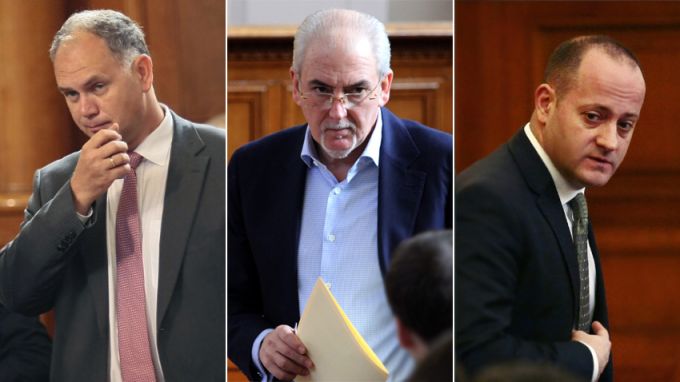
This Sunday, a month after the Bulgarian Socialist Party excluded Georgi Kadiev from its parliamentary group, he announced the idea to establish a new political formation. This would be the third formation to split from BSP since 2010. First were Movement 21 of Tatyana Doncheva and the ABC party of former BSP leader Georgi Parvanov.
The news about the new formation could have passed unnoticed if days before that former chairman of the Movement for Rights and Freedoms, Lyutvi Mestan, had not announced the creation of a new political project DOST, which in Bulgarian stands for Democrats for Responsibility, Solidarity and Tolerance. Mestan was recently ousted from the leader’s position of MRF after confrontation with honorary chair Ahmed Dogan. In Turkish DOST means “a friend” but Mestan does not hide his feelings of animosity towards Dogan. His project would be "a real liberal party" supported by those disagreeing with Dogan. Thus the political movements feuding in the sphere of ethnic Turkish voters have become three - MRF /now in opposition/; the centrist Liberal Party of Kasim Dal /now participating in the government as a member of the right coalition Reformist Bloc/; and the new DOST party that is yet to come.
The latest split in MRF creates division not only among the Turkish electorate in Bulgaria, but also among many ethnic Turks living in Turkey. The Turkish government does not support MRF, judging by Ankara banning Ahmed Dogan from traveling to Turkey. The ban was not officially confirmed, nor rejected. But feelings are mutual, because soon after the split in MRF, Dogan’s delegation visited Turkey for talks with opposition Republican People's Party. No matter how discrete these political relations are, they also reflect in official relations between Bulgaria and Turkey.
Recently political analysts in Bulgaria had been waiting for something that did not happen - a clarification of the internal situation in the Reformist Bloc. Originally composed of five political forces, today the coalition is in an unusual situation in which four of its members support the government and one - Democrats for Strong Bulgaria /DSB/ is in opposition. The attempt to restore unity by updating the coalition agreement has failed and currently DSB keeps distance from both the ruling GERB Party and the opposition in the face of BSP and MRF. The issue is expected to be solved in May or June when the formations part of the Reformist Bloc are expected to produce a new agreement and to hold a congress, which is to turn the bloc into a political confederation with maximum independence for the participating parties, but with unified leadership. After the Congress a new coalition agreement for joint participation in the presidential elections would be signed. Ideas for expanding the coalition have also been discussed. It seem the trend here is also fragmentation rather than consolidation.
After the latest political events, parties in Bulgaria have become over 400. Looking at the main players one can say fragmentation continues not because of ideas, but because of leadership ambitions. At the backdrop of growing apathy among the electorate, experts have difficulties assessing the situation, but it seems only the biggest parties would be on the winning side.
English: Alexander Markov
Albania and Montenegro mark progress in European integration in 2024 EU leaders met on December 18 with their counterparts from the Western Balkans. European Commission President Ursula von der Leyen called for finding..
Caretaker Minister of Foreign Affairs Ivan Kondov participated in the regular meeting of the EU Foreign Affairs Council in Brussels, BTA reports. This was the first meeting chaired by the new EU High Representative for Foreign Affairs and Security..
The former finance minister from GERB, Vladislav Goranov, told the Bulgarian National Radio that there are signals indicating that a government could be formed. ''We should make every effort to form a regular cabinet - not only because of the state of..

+359 2 9336 661
